Traditional, 10-Year MOC Exam
David E. Haines, MD, Chair
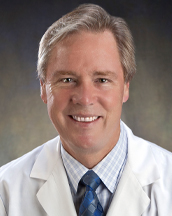 Dr. Haines is Professor of Cardiovascular Medicine at Oakland University-William Beaumont School of Medicine and the Director of the Heart Rhythm Center at Beaumont Health in Royal Oak, Michigan. He is also a former Director of the Clinical Cardiac Electrophysiology (CCEP) Fellowship program. He is board certified in Clinical Cardiac Electrophysiology, Cardiovascular Disease and Internal Medicine. He is a fellow of both the Heart Rhythm Society and the American College of Cardiology.
Dr. Haines is Professor of Cardiovascular Medicine at Oakland University-William Beaumont School of Medicine and the Director of the Heart Rhythm Center at Beaumont Health in Royal Oak, Michigan. He is also a former Director of the Clinical Cardiac Electrophysiology (CCEP) Fellowship program. He is board certified in Clinical Cardiac Electrophysiology, Cardiovascular Disease and Internal Medicine. He is a fellow of both the Heart Rhythm Society and the American College of Cardiology.
Previously, Dr. Haines was Professor of Medicine at the University of Virginia. At that institution, he was Director of the CCEP Fellowship program from 1989 to 2003 and Director of the Cardiovascular Fellowship Training Program from 1988 to 2002.
Dr. Haines is currently the President of the Intersocietal Accreditation Commission for Cardiac Electrophysiology and a member of the Cardiovascular Board Clinical Cardiac Electrophysiology Exam Committee of the American Board of Internal Medicine. He has served the Heart Rhythm Society (HRS) as Vice Chair of the Scientific and Clinical Documents Committee, Chair of the Fellowship and Training Committee, and on numerous other committees and task forces. Between 1999 and 2013, Dr. Haines was co-Chair of the HRS Board Review Course. Dr. Haines has also volunteered his services on several committees for the American College of Cardiology (ACC) and as the ACC Governor of Virginia.
Dr. Haines received his bachelor's degree from Williams College, Williamstown, Massachusetts, and his medical degree from the University of Rochester School of Medicine and Dentistry, Rochester, New York. He completed his internal medicine training at the University of Vermont, Burlington, Vermont, and his cardiology and clinical cardiac electrophysiology training at the University of Virginia, Charlottesville, Virginia.
As of July 2022, Dr. Haines reported the following external relationships:
Preclinical research, with funding paid to Beaumont Health, from the following company:
- Medtronic, for a study of new ablation catheters, with funding for clinical trial expenses, salary support and research staff
Funding for clinical trial expenses, salary support and staff, paid to Beaumont Health, from the following companies:
- Abbott, for a study of left atrial appendage occlusion, receiving funding for clinical trial expenses and staff
- Boston Scientific, for a catheter ablation study, a study for treating heart failure and a study of a subcutaneous implantable defibrillator, receiving funding for clinical trial expenses, salary support and staff
- Bristol Myers Squibb, for a study of treatment with apixaban compared with aspirin to reduce the risk of ischemic stroke and systemic embolism in patients with device-detected subclinical atrial fibrillation and additional risk factors for stroke, receiving funding for clinical trial expenses and staff
- EBR Systems, for a study of pacing technology, receiving funding for clinical trial expenses and staff
- Medtronic, for a study of pulsed electric fields to treat atrial fibrillation, receiving funding for clinical trial expenses and staff
- S4Medical, for an esophageal deviation study, receiving funding for clinical trial expenses and staff
Service on a research-related expert panel or advisory board for the following companies, with compensation for travel expenses and honoraria:
- Boston Scientific, for service on a steering committee
- Medtronic, for service on a steering committee
- Zoll, for service on an advisory committee
Consulting on the design of new drugs or devices, clinical trials, the use of specific agents or other research-related activities for the following companies, with compensation for travel expenses and honoraria:
- Boston Scientific
- LuxCath
- Medtronic
- Philips
Post-marketing clinical research, with funding for salary support, from the following companies:
- Integer
- Philips
Industry-supported continuing medical education supported by the following, with compensation for travel expenses and honoraria:
- Beaumont Health Cardiovascular Conference
- Biosense Webster
- Boston Scientific
- EP Lab Digest
- Western Atrial Fibrillation Symposium
Providing FDA-required training in the use of devices with reimbursement for travel expenses from the following companies:
- EBR Systems, regarding pacing technology
Dr. Haines serves in significant roles with the following organizations, receiving reimbursement or compensation as listed:
- The Heart Rhythm Society, Board of Trustees, without compensation.
- The Intersocietal Accreditation Commission, Board of Directors, Member, receiving reimbursement for travel expenses
Emile Daoud, MD
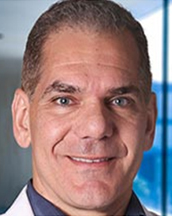 Dr. Daoud is Professor, Internal Medicine at the Wexner Medical Center at The Ohio State University in Columbus, Ohio. He serves as the Chief of Cardiac Electrophysiology since 2007. He is board certified in Cardiovascular Disease and Clinical Cardiac Electrophysiology.
Dr. Daoud is Professor, Internal Medicine at the Wexner Medical Center at The Ohio State University in Columbus, Ohio. He serves as the Chief of Cardiac Electrophysiology since 2007. He is board certified in Cardiovascular Disease and Clinical Cardiac Electrophysiology.
From 1998 to 2007, Dr. Daoud was Director of Electrophysiology Research with the Midwest Research Foundation and worked as a Clinical Electrophysiologist with MidOhio Cardiology at Riverside Methodist Hospital, before joining The Ohio State University in 2007. Prior to that, following fellowship training, he was Assistant Professor at the University of Michigan for three years before relocating to Columbus, Ohio.
Dr. Daoud has published more than 150 manuscripts and has a particular interest in ablation of atrial and ventricular arrhythmias and device therapy, including biventricular pacing, subcutaneous defibrillators, and leadless pacing systems. He is currently a Fellow of the American College of Cardiology and a Fellow of the Heart Rhythm Society, as well as a member of the American Heart Association. He has been listed as America's Best Doctors in the U.S. News and World Report, a Top 10 faculty educator at The Ohio State University Medical Center and has served on numerous national steering committees and advisory boards, including serving as a member of the American Board of Internal Medicine Cardiovascular Board Clinical Cardiac Electrophysiology Exam Committee.
Dr. Daoud received his undergraduate degree from University of Notre Dame, and his medical degree from the University of Cincinnati. He then completed internal medicine training at The Johns Hopkins Hospital (1988-1991) in Baltimore, Maryland, and cardiology fellowship and subspecialty training in electrophysiology at the University of Michigan (1991-1995) in Ann Arbor, Michigan.
As of July 2022, Dr. Daoud reported the following external relationships:
Funding for clinical trial expenses and staff, paid to Ohio State University, from the following companies:
- Medtronic, for a trial on pulsed-field ablation for atrial fibrillation
- Affera, for a trial on pulsed-field ablation for atrial fibrillation
- S4Medical, for an esophageal deviation study
Attendance at investigators’ meetings, with compensation for travel expenses and honoraria from the following companies:
- S4Medical, for an esophageal deviation study
Service on a research-related expert panel or advisory board for the following companies, with compensation for travel expenses and honoraria:
- Biosense Webster, advising on design of an investigational device exemption and subsequent clinical trial with new mapping tool for atrial fibrillation rotors
Consulting on the design of new drugs or devices, clinical trials, the use of specific agents or other research-related activities for the following companies, with compensation for travel expenses and honoraria:
- S4Medical, for an esophageal deviation study
Dr. Daoud serves in significant roles with the following organizations, receiving reimbursement or compensation as listed:
- The American College of Cardiology, Associate Editor, receiving honoraria
- S4Medical, Board, Member, inventor of esophageal protection device for atrial fibrillation ablation procedures, receiving consulting fees and stock equity
James P. Daubert, MD
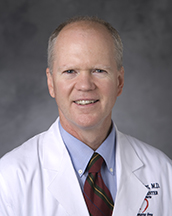 Dr. Daubert is a Professor of Medicine with tenure at Duke University School of Medicine, member of the Duke Clinical Research Institute faculty, and Associate Director of the Heart Center at Duke University Medical Center. He is Board Certified in Internal Medicine, Cardiology, and Clinical Cardiac Electrophysiology.
Dr. Daubert is a Professor of Medicine with tenure at Duke University School of Medicine, member of the Duke Clinical Research Institute faculty, and Associate Director of the Heart Center at Duke University Medical Center. He is Board Certified in Internal Medicine, Cardiology, and Clinical Cardiac Electrophysiology.
Dr. Daubert founded and developed the EP program at University of Rochester beginning in 1992 until 2009. He returned to Duke in 2009 as Chief of the Section of Cardiac Electrophysiology serving until 2019. His research interests include sudden cardiac death, ICD/CRT indications and programming, inherited arrhythmias, sports cardiology, and atrial fibrillation. He has served on the MADIT Executive Committees, and numerous other Steering, Events and Data Monitoring committees. He chaired the Heart Rhythm Society Clinical Cardiology Electrophysiology Program Director Subcommittee, and is Vice Chair of the Education Committee.
He was awarded the Simon Dack Award for Outstanding Scholarship from JACC in 2010, and Elite Reviewer status multiple years. He is the Associate Editor of JACC Clinical Electrophysiology, Senior Consulting Editor at JACC Heart Failure, and Associate Editor for Journal of Interventional Cardiac Electrophysiology. He is on the Editorial Boards at JACC, Heart Rhythm, Journal of Interventional Cardiac Electrophysiology, Pacing and Clinical Electrophysiology, American Journal of Cardiology, Journal of Electrocardiology, and American Heart Journal. Outside of work he enjoys fishing and hockey, has coached youth hockey coach and been a volunteer physician for Somos Amigos in the Dominican Republic for 15 years receiving a Lifetime Achievement Award.
He attended Williams College (cum laude), then received his medical degree at Thomas Jefferson University. He received his postgraduate medical training at Duke, serving as Medicine Chief Resident 1988-1989.
As of June 2023, Dr. Daubert reported the following external relationships:
Funding for clinical trial expenses, salary support and staff, paid to Duke University, from the following companies:
- Boston Scientific, to study the role of antitachycardia pacing in primary prevention patients indicated for implantable cardioverter-defibrillator (ICD) therapy and programmed according to current guidance of higher rate cut-offs and therapy delays, receiving funding for expenses and staff
- Medtronic, for a study to test cardiac resynchronization therapy (CRT) devices which contain the AdaptivCRT (aCRT) algorithm compared to standard CRT devices for patients with normal atrio-ventricular conduction and left bundle branch block, receiving funding for expenses, salary support and staff
Service on data and safety monitoring boards for the following companies, with honoraria:
- Actus, for service as a safety monitoring officer
- Affera, for service on a clinical events committee
- Biosense Webster, for service on three events committees
- The National Institutes of Health Cardiothoracic Surgery Network, for service as a data and safety monitoring board member
- The National Institutes of Health/National Heart, Lung, and Blood Institute, for service as a data and safety monitoring board member for a His-Bundle Corrective Pacing in Heart Failure study
- Philips, for service on a clinical events committee
- Syneos, for the RESTORE-1 (FLE-007) clinical events committee
Service on a research-related expert panel or advisory board for the following companies, with honoraria:
- Boston Scientific, for advising on the design of an automatic defibrillator implantation trial-subcutaneous ICD, without compensation; for advising on a study on the role of antitachycardia pacing in primary prevention patients indicated for ICD therapy and programmed according to current guidance of higher rate cut-offs and therapy delays, receiving honoraria
- Medtronic, for serving on an advisory board for quality and recalls, receiving honoraria
- Sorin, for a heart failure study steering committee, receiving honoraria
Industry-supported continuing medical education supported by the following, paid to Duke University, with compensation for travel expenses and honoraria:
- Abbott
- Baylis Medical
- BioTel Heart/Geneva Health Solutions
- Biosense Webster
- Biotronik
- Boehringer Ingelheim
- Boston Scientific
- Bristol-Myers Squibb
- Medtronic
- Pfizer
- Philips
- Sanofi
Work as an author or editor for the following companies, with compensation as listed:
- McGraw Hill, receiving compensation for authorship
- Wiley-Blackwell, receiving compensation as an editor
Dr. Daubert serves in significant roles with the following organizations, receiving reimbursement or compensation as listed:
- The Heart Rhythm Society, Education Committee, Chair, receiving reimbursement for travel expenses
Dr. Daubert also receives fees from the American Medical Foundation for Peer Review and Education.
Nathan A. Mark Estes III, MD
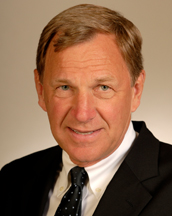 Dr. Estes is Professor of Medicine at Tufts University School of Medicine and Director of the Cardiac Arrhythmia Service at Tufts Medical Center, Boston, Massachusetts. He is board certified in Internal Medicine, Cardiovascular Disease and Clinical Cardiac Electrophysiology.
Dr. Estes is Professor of Medicine at Tufts University School of Medicine and Director of the Cardiac Arrhythmia Service at Tufts Medical Center, Boston, Massachusetts. He is board certified in Internal Medicine, Cardiovascular Disease and Clinical Cardiac Electrophysiology.
Dr. Estes is a member of the American Board of Internal Medicine Cardiovascular Board Clinical Cardiac Electrophysiology Exam Committee and has served on the Examination Writing Committee for the International Board of Heart Rhythm Examiners. He has served as the President of the Boston Board and Northeast Affiliate of the American Heart Association (AHA), Chairman of the AHA Council on Clinical Cardiology, and President of the Heart Rhythm Society. Dr. Estes has co-Chaired the Performance Measure Writing Committee of the American College of Cardiology (ACC) and AHA Atrial Fibrillation Performance Measures. He has served on the Performance Measures Committee of the Heart Rhythm Society and on the Quality Metrics Task Force of the ACC.
Dr. Estes is the Editor-in-Chief of UpToDate®in Cardiology. He has received multiple awards and honors, including being elected to Alpha Omega Alpha at the University of Cincinnati, the University of Pennsylvania Award of Merit, Moses Brown School Distinguished Achievement Award, the AHA Paul Dudley White Award and the Distinguished Leadership Award of the AHA. Dr. Estes also has been recognized with the President's Award of the Heart Rhythm Society (2013), the Distinguished Achievement Award of the European Cardiac Arrhythmia Society (2014) and the AHA Distinguished Achievement Award (2014).
Dr. Estes received his undergraduate degree from the University of Pennsylvania and his medical degree from the University of Cincinnati. He completed medical training at the Deaconess Hospital, cardiology training at Tufts Medical Center, and clinical cardiac electrophysiology training at Massachusetts General Hospital.
As of September 2022, Dr. Estes reported the following external relationships:
Work funded by educational grants from industry, paid to Dr. Estes, from the following companies:
- Boston Scientific, receiving salary support for director of educational course for fellows
- Medtronic, receiving salary support for safety and quality panel
Work as an author or editor for the following company, with compensation as listed:
- UpToDate®, receiving compensation as editor-in-chief of the cardiovascular section
Usha B. Tedrow, MD, PhD
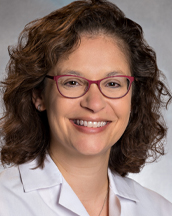 Dr. Tedrow is an invasive clinical cardiac electrophysiologist with clinical expertise in complex catheter ablation, particularly ablation of ventricular tachycardia (VT). She is an expert in the use of novel technologies to address hard-to-reach intramural substrate for ventricular arrhythmias, currently a major source of VT ablation failure. In addition, she is the Director of the Clinical Cardiac Electrophysiology (CCEP) program at Brigham and Women's Hospital, and lectures in the core curriculum for the CCEP fellows and develops the educational curriculum. On a national level, she is the Heart Rhythm Society Representative on the recent COCATS Task Force addressing updated guidelines for training in Cardiac Electrophysiology; she is also the Chair of the Heart Rhythm Society Program Directors' Subcommittee, where among other activities, she has been involved in developing an in-training examination for fellows in CCEP. She is an Associate Editor for the Journal of the American College of Cardiology's Electrophysiology Journal and has been an editorial board member for the journal Circulation: Arrhythmia and Electrophysiology.
Dr. Tedrow is an invasive clinical cardiac electrophysiologist with clinical expertise in complex catheter ablation, particularly ablation of ventricular tachycardia (VT). She is an expert in the use of novel technologies to address hard-to-reach intramural substrate for ventricular arrhythmias, currently a major source of VT ablation failure. In addition, she is the Director of the Clinical Cardiac Electrophysiology (CCEP) program at Brigham and Women's Hospital, and lectures in the core curriculum for the CCEP fellows and develops the educational curriculum. On a national level, she is the Heart Rhythm Society Representative on the recent COCATS Task Force addressing updated guidelines for training in Cardiac Electrophysiology; she is also the Chair of the Heart Rhythm Society Program Directors' Subcommittee, where among other activities, she has been involved in developing an in-training examination for fellows in CCEP. She is an Associate Editor for the Journal of the American College of Cardiology's Electrophysiology Journal and has been an editorial board member for the journal Circulation: Arrhythmia and Electrophysiology.
Clinically, Dr. Tedrow performs invasive catheter ablation of ventricular and supraventricular tachycardia, as well as implantation of cardiac devices (pacemakers, defibrillators, resynchronization devices). Additionally, she performs percutaneous epicardial ablation, a specialized quaternary referral procedure, as well as needle catheter ablation under an institutional FDA IDE. In addition, it is worth mentioning that nationally less than10% of electrophysiologists are female and of these only a fraction performs complex ablation.
Dr. Tedrow is able to meld high-level clinical expertise in highly specialized invasive cardiac electrophysiology with the administrative challenges of running an academic electrophysiology program, while cultivating exciting clinical research.
Dr. Tedrow received her medical degree from Harvard Medical School. She completed an internal medicine residency and a cardiology fellowship at Massachusetts General Hospital. In addition, she completed a cardiac electrophysiology fellowship at BWH.
As of June 2022, Dr. Tedrow reported the following external relationships:
Service on data and safety monitoring boards for the following company, with honoraria:
- Thermedical
Service on a research-related expert panel or advisory board for the following companies, with compensation for travel expenses and honoraria:
- National Institutes of Health, for a randomized trial of sympathectomy versus usual care for ventricular tachycardia ablation patients, without compensation.
- Biosense Webster.
Teaching in satellite symposia funded by the following companies, with honoraria:
- Abbott, for a fellows’ education course.
- Biosense Webster, for a fellows’ education course.
- Baylis Medical, for a fellows’ education course.
- Boston Scientific, for a fellows’ education course.
Dr. Tedrow serves in significant roles with the following organizations, receiving reimbursement or compensation as listed:
- American College of Cardiology, Cardiovascular Disease to Clinical Cardiac Electrophysiology Alternative Training Pathway, without compensation.
- Heart Rhythm Society, Vice Chair of Education Council, Fellows in-Training Working Group, without compensation.


